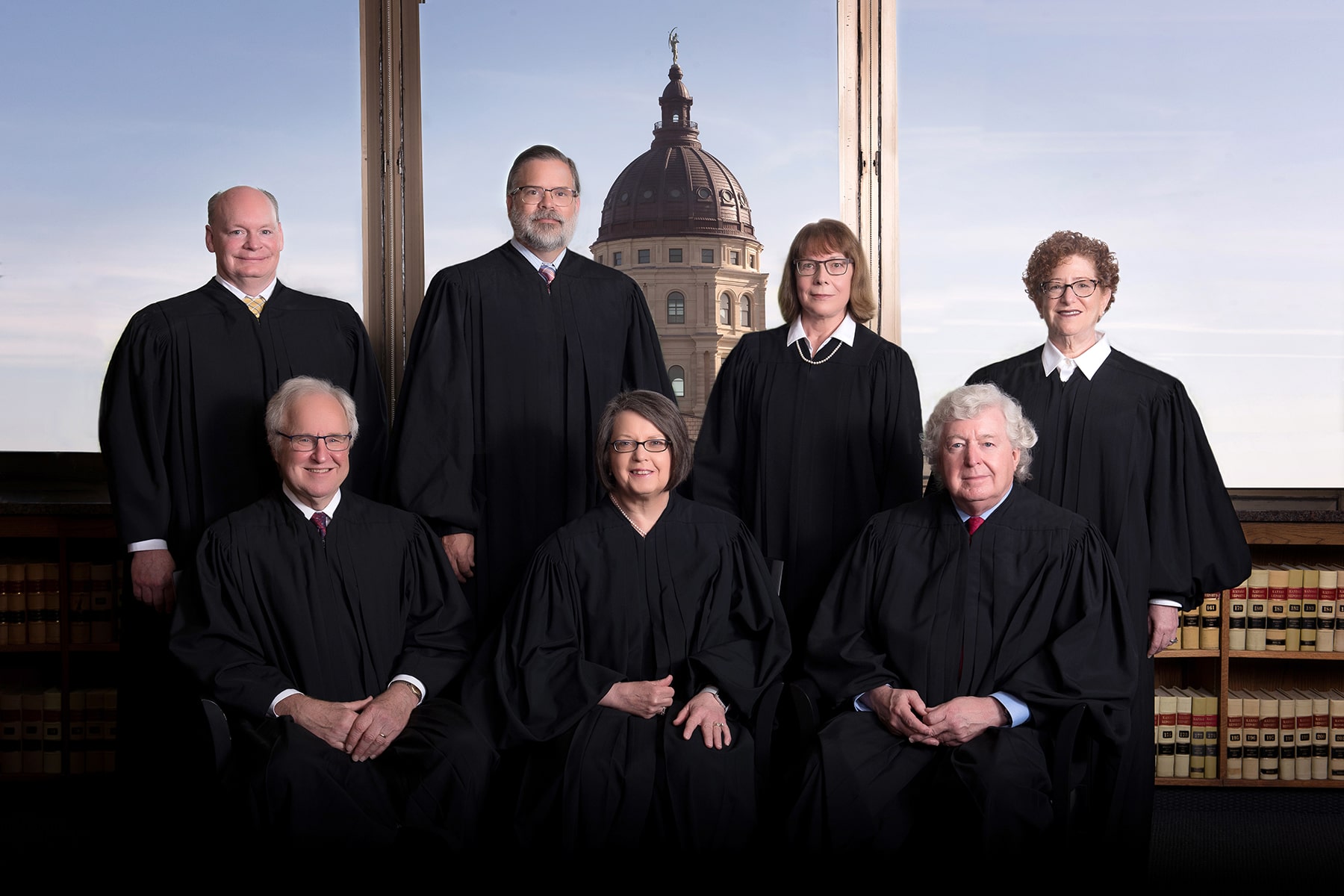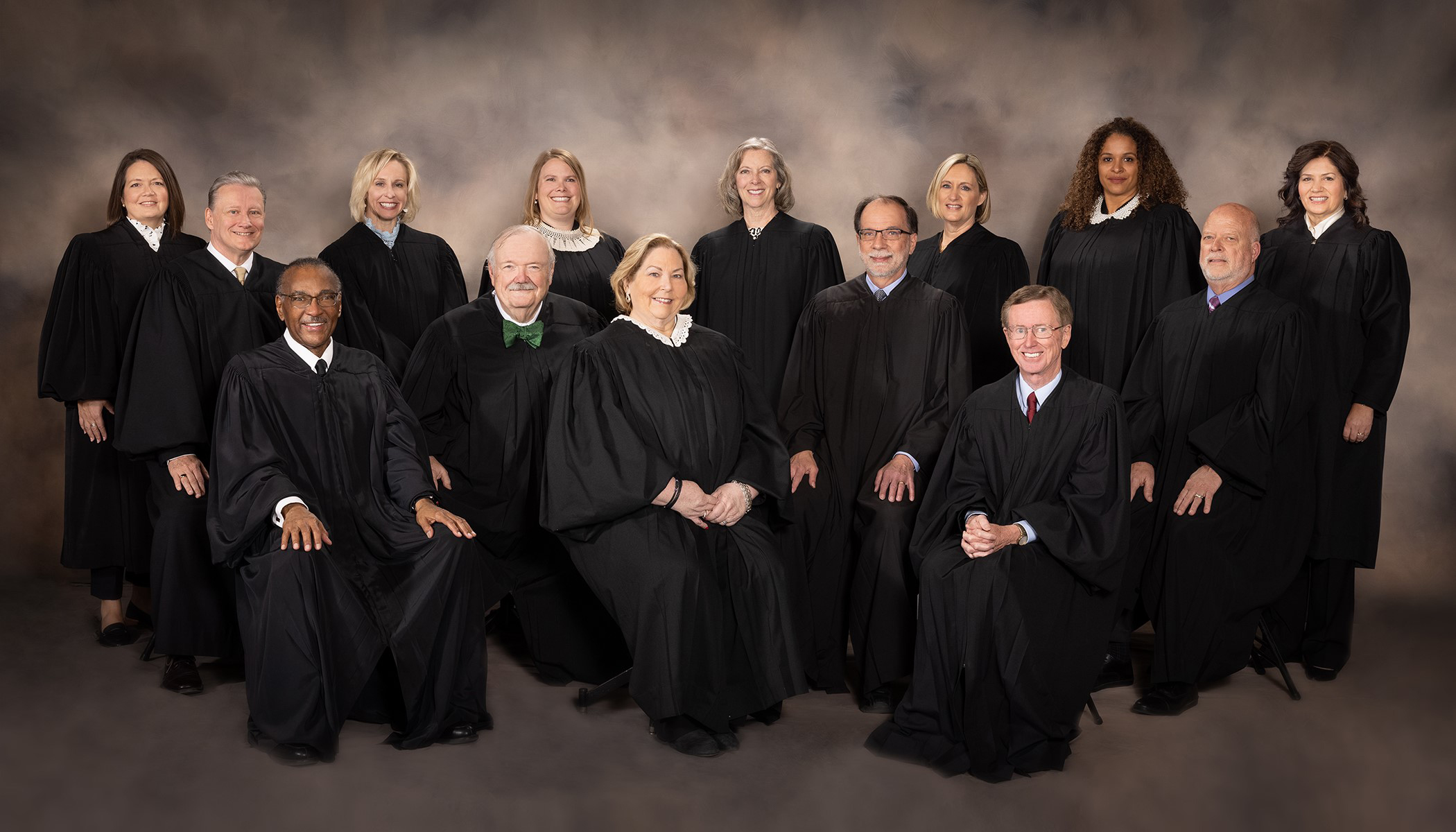
KansansforFairCourts
DO YOU BELIEVE KANSAS COURTS SHOULD BE FAIR AND IMPARTIAL?

Kansans for Fair Courts
DO YOU BELIEVE KANSAS COURTS SHOULD BE FAIR AND IMPARTIAL?
So Do We.
The Kansas Supreme Court has been the main focus of political attacks, but the entire court system has felt the fallout. Regardless of the tactics, the result is always the same: Kansans are asked to evaluate sitting justices and judges as politicians rather than impartial jurists.
Many things in Kansas are broken, but our court system isn’t one of them.
Still, politicians in Topeka continue to attack our courts at an alarming rate. That’s why we are working to keep politicians out of the courtroom and ensure fair and impartial courts that protect the constitutional rights of every Kansan.
We must preserve the system for selecting judges based on their qualifications, character, and ability.
We must keep judges and justices on the bench who are selected that way.
It’s time to stop these politicians. It’s time to stand up for your rights, defend the Constitution, and protect our courts.
Make your voice heard. Let’s keep our courts fair and impartial.
Join the Fight

The Court
The Court
Kansans get the chance to hold Kansas Supreme Court justices accountable through periodic retention elections — when voters choose whether to keep each justice on the bench. In 2016, voters retained all five justices who stood for retention and nearly half of the Court of Appeals judges who stood for retention. In 2020, voters retained Justice Eric Rosen. In 2022, voters retained all six of the seven Supreme Court Justices up for retention with the highest margin since retention elections began.

Kansas Supreme Court

Kansas Court of Appeals
Merit Selection
Merit Selection
Merit Selection: Ensuring Fair and Impartial Courts
In 2013, Governor Sam Brownback set his sights on the courts, calling for changes to how judges and justices were selected to give him more influence — so he could pack the courts with jurists more loyal to a political ideology than to the constitution and the law. He persuaded the legislature to replace a merit-based system for selecting judges to the Kansas Court of Appeals, the second highest court in the state, with a purely political model that gives the governor complete control of the process. He called repeatedly for an amendment to the Kansas constitution that would do the same for the selection of justices to the Kansas Supreme Court.
When it comes to our court system, Kansans believe strongly that:
- Our courts should be fair and impartial.
- Courts should protect the constitutional rights of every Kansan.
- Politicians have no place in our courtrooms.
The good news? Kansas has one of the best systems for selecting justices to the state supreme court. It is based on merit — not political access. The Kansas merit selection system is considered the gold standard for selecting justices to the high court. The system is transparent and gives everyone a voice in the process.
It’s no wonder, then, that some politicians are threatened by it. How did we get here?
Why We Choose Justices Based On Merit Rather Than Politics:
In 1956, Gov. Fred Hall found himself at the center of a notorious scandal known as the Triple Play. After losing his re-election bid, Hall schemed to install himself as chief justice on the Kansas Supreme Court. A few days before the end of his term, both Hall and the chief justice (a friend of Hall) resigned, and the lieutenant governor, sworn in as governor, quickly appointed Hall as the new chief justice. It was his only official act during the 11 days he served as governor. (At the time, justices were elected to the bench, but the governor could appoint justices to fill vacancies between elections.)
This brazen political episode disgusted the people of Kansas. They felt so strongly about keeping their court free of politics that they changed the state constitution to provide for the best possible way to select justices based upon merit — their qualifications, their legal ability and experience, and their ability to be fair to all Kansans. For nearly 70 years, this merit-based system has worked well under both Republican and Democratic administrations, ensuring fair and impartial courts insulated from partisan pressure — but the system is now under attack.
How Does The Merit System Work?
In response to the Triple Play, Kansans voted to adopt the merit system for selecting justices to the Kansas Supreme Court. The constitutional amendment overwhelmingly passed in 1958 and has served Kansas well for over 60 years.
At the heart of the merit system is the Supreme Court Nominating Commission. The commission has nine members — five elected attorneys and four governor-appointed non-attorney members — who are responsible for recommending three qualified candidates to the governor for consideration and appointment to the Supreme Court. The governor interviews the three nominees and appoints one to the bench. The newly appointed justice stands for a retention vote during the first general election after being appointed to the court. Following that initial retention vote, justices stand for retention every six years. Retirement is mandatory at age 75.